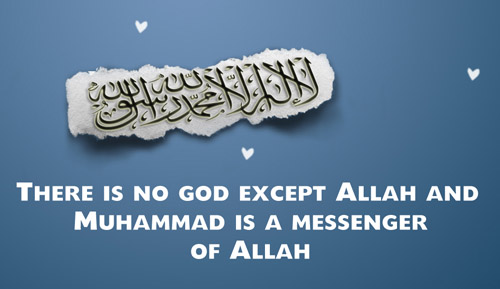Anas b. Mâik narrates that Allah’s Messenger (peace be upon him) used to break his fast with fresh dates before going to prayer. When fresh dates were unavailable, he would break his fast with dried dates. When dried dates were unavailable, he would take a few sips of water. [Sunan Abî Dâwûd (2356)]
This hadîth describes how the Prophet (peace be upon him) used to break his fast. The most important thing the hadîth shows us is that he used to hasten to break his fast as soon as the time of the Maghrib prayer – the time of sunset – arrived. Anas clearly tells us that he ate the dates “before going to prayer.”
Indeed, the Prophet (peace be upon him) encouraged his followers to break their fasts as soon as possible.
He said: “The people will continue to be upon what is good as long as they hasten to break the fast.” [Sahîh al-Bukhârî (1821) and Sahîh Muslim (1838)]
He used to offer the following supplication upon breaking his fast: “Thirst is gone, the blood is refreshed, and the reward is granted, by the grace of Allah. [Sunan Abî Dâwûd (2357) and graded by al-Albânî as a good hadîth in Sahîh Sunan Abî Dâwûd]
It was the habit of the Prophet (peace be upon him) to break his fast with dates, as we see in the hadîth narrated by Anas above. It is not mentioned in the Sunnah that for breaking the fast, the dates should be an odd number.
However, it is related from Anas that Allah’s Messenger (peace) never went out in the morning on the day of `Id al-Fitr without eating some dates, and that they would be an odd number. [Sahîh al-Bukhârî (953)]
There is another hadîth attributed to Anas that the Prophet (peace be upon him) said: “Whoever finds dates should break his fast with them. Whoever does not, should break his fast with water, for indeed water is a purification.” [Sunan al-Tirmidhî (694)]
This hadîth is weak.
Nevertheless, it is certainly the Sunnah to emulate the Prophet’s practice by breaking our fasts with dates, when they are available. However, a Muslim may break the fast with other foods, if that is what he or she wishes to do.
There is no strict requirement regarding the type or quantity of food that may be eaten before observing the Maghrib prayer, though clearly the Prophet’s example is to eat only a little bit at that time.
It has become the custom for some people to eat dates along with other finger foods, like samosas and sweets, before prayer. These foods are often provided along with dates at various mosque, including the Prophet’s Mosque in Madinah. There is nothing wrong with this custom.
All the same, the Muslims should be conscious of the time. They should not become so preoccupied with eating that the prayer is postponed or in any way neglected. It is a mistake for men to neglect congregational prayer at the mosque because of what they are eating.
The iftâr that Muslims are supposed to observe is to take some food before offering the Maghrib prayer. After the Maghrib prayer, the Muslims are free to eat when and how they like up to the time of dawn.
Allah says: “Eat and drink until the white thread becomes distinct to you from the black thread of the dawn. Then strictly observe the fast until nightfall, but do not associate with your wives while you are in retreat in the mosques. These are the limits imposed by Allah, so approach them not. Thus Allah expounds His revelation to mankind that they may ward off (evil).” [Sûrah al-Baqarah: 187]
There are no preferred times for meals, except to have a meal right before the time of dawn. Otherwise, the Muslim can take his or her meals at any time of the night. Some people prefer to eat a large dinner after the Maghrib prayer. Others prefer to postpone eating until after observing Tarâwîh. Still others prefer to make their pre-dawn meal the main meal of the night. People have various preferences. Also, families and cultures have a wide variety of customs in this regard.
In any case, Muslims should observe the same moderation in eating that they are supposed to show throughout the rest of the year, if not more so. They should not overindulge in food during the nights of Ramadân.
The Prophet (peace be upon him) said: “The child of Adam fills no vessel worse than his stomach. Sufficient for the child of Adam are a few morsels to keep his back straight. If he must eat more, then a third should be for his food, a third for his drink, and a third left for air.” [Sunan al-Tirmidhî (2380) and Musnad Ahmad (17186) and authenticated by al-Albânî in Sahîh al-Jâmi`] -islamtoday.net

No comments:
Post a Comment